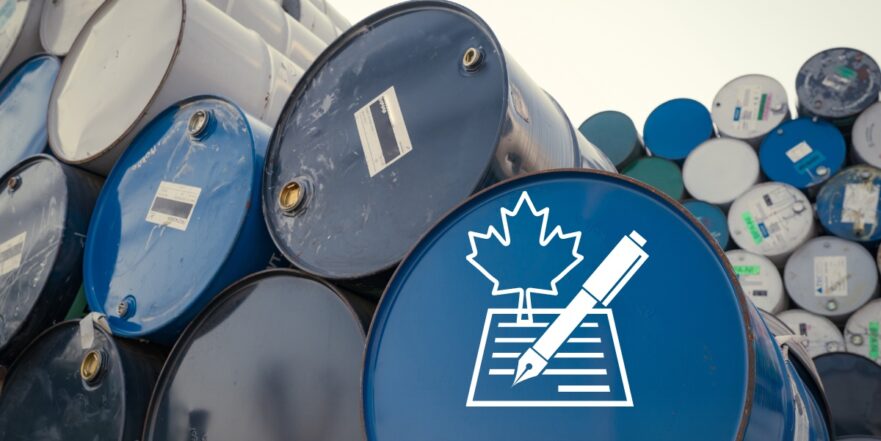Proper management, handling, and disposal of hazardous waste is a high priority in Canada. To protect the environment and the public, the country has established a comprehensive array of regulations and legislation.
Businesses operating in Canada are held accountable for adhering to these rules that regulate waste management. Staying up-to-date and informed about these laws and regulations ensures compliance with Canadian standards.
That’s why, in this blog, we’re going to take a quick look at Canadian hazardous waste legislation. We hope this overview can help introduce your business to Canadian hazardous waste legislation, helping you comply with the regulations that apply to you.
Municipal Government Regulation
Hazardous waste management and environmental protection fall under the jurisdiction of all levels of government. At the municipal level, local governments supervise various programs within their regions, such as waste collection, recycling, disposal, and wastewater management.
According to the Association of Municipalities Ontario (AMO), Ontario municipalities have an Extended Producer Responsibility (EPR). This policy mandates that the creators of a product, like manufacturers, packagers, or retailers, bear the responsibility for the end-of-life management of their products. This approach alleviates some waste management burdens from municipalities and taxpayers.
Provincial Government Regulation
On the provincial level, multiple organizations collaborate on waste management issues. The Ministry of the Environment, Conservation and Parks (MECP) and the Resource Productivity and Recovery Authority (RPRA) play significant roles.
The MECP oversees provincial legislation and compliance, while the RPRA, a regulator mandated by the Government of Ontario, enforces the circular economy laws. The RPRA administers the Resource Recovery and Circular Economy Act, 2016 (RRCEA) and the Waste Diversion Transition Act, 2016 (WDTA). Provincial and territorial governments determine the licensing for hazardous waste generators, carriers, and treatment facilities and control waste movement within their borders.
Federal Government Regulation
At the federal level, Environment Climate Change Canada (ECCC) manages national waste. Within the ECCC, the Waste Reduction and Management Division (WRMD) handles waste management in more detail.
The ECCC provides tools such as an online notification and permit system, ensuring regulatory compliance, and enforces legislation like the Canadian Environmental Protection Act, 1999 (CEPA). This Act regulates hazardous waste management, recycling disposal, and is pivotal in controlling waste containing environmentally and health-harmful chemicals.
The Canadian Environmental Protection Act, 1999
Environment Climate Change Canada notes that CEPA 1999 expands the government’s regulatory authority on hazardous wastes and recyclables, including regulations on the import and export of hazardous wastes.
It sets assessment criteria for hazardous imports and exports, requires final disposal exporters to submit export reduction plans, and regulates the inter-provincial movements of hazardous wastes.
Hazardous wastes and recyclable materials are defined by their corrosive, inherently toxic, or flammable properties. These materials, which may originate from various industries or even household products, can cause issues like environmental contamination through leaching and skin damage on contact.
Hazardous wastes are categorized into nine classes, each with unique criteria:
- Class 1: Explosives
- Class 2: Gases
- Class 3: Flammable liquids
- Class 4: Flammable solids; substances liable to spontaneous combustion, substances that emit flammable gases on contact with water
- Class 5: Oxidizing substances and organic peroxides
- Class 6: Toxic and infectious substances
- Class 7: Radioactive materials
- Class 8: Corrosives
- Class 9: Miscellaneous products, substances, or organisms
Knowing the classes of substances you work with and understanding the legislative requirements for each waste management and safety regulation is crucial.
For further information or to discuss any concerns, don’t hesitate to contact us at Maratek Environmental.
With over 50 years of experience, we offer hazardous waste disposal services that simplify waste management for you. We’re well-versed in Canada’s hazardous waste legislation and are ready to assist you in ensuring that your business stays in compliance.

